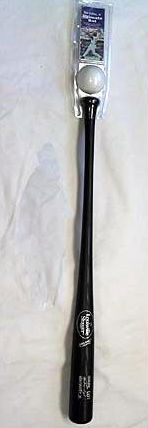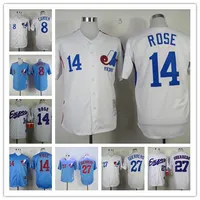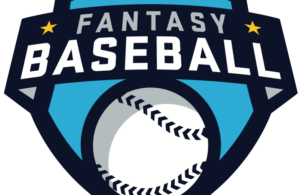- Pro Maple Composite Wood Hybrid L180 Bat by AXE: A ReviewPosted 6 years ago
- Book Review: Heroes, Scamps and Good GuysPosted 7 years ago
- Book Review: Baseball Before We Knew ItPosted 7 years ago
- Book Review: Omar!Posted 7 years ago
- Book Review: A Deadly GamePosted 7 years ago
- Book Review: The Manager’s DaughterPosted 10 years ago
- Baseball in the Garden of Eden, A Book ReviewPosted 14 years ago
Wiffle Ball is All About the Right Bat
- By Scott Butler
- Updated: March 28, 2010
Views: 15
 I wrote an article yesterday about the beauty of Wiffle ball, but I ignored a very important point in my discussion. In fact, it is such an important point that it deserves its own article. I would like to talk about a very special bat.
I wrote an article yesterday about the beauty of Wiffle ball, but I ignored a very important point in my discussion. In fact, it is such an important point that it deserves its own article. I would like to talk about a very special bat.
I am 31-years-old and play Wiffle ball nearly every day in the summertime with my brother. Pathetic, I know, but that surely would not be the case if it weren’t for a certain bat. Wiffle ball (and my life, as it turns out) changed forever the day my brother bought a plastic Louisville Slugger bat. A 34 inch black bat that had the shape and look of a real baseball bat.
This bat entirely changed the way we played Wiffle ball.
The bat itself is no miracle product, but with it you can launch Wiffle balls like you never have before. One of the biggest drawbacks with the standard yellow bat is that the ball doesn’t travel very far no matter how hard you swing. But you certainly can give the ball a ride with the Louisville Slugger bat. Simple physics can explain why this is the case. First, the bat is wider. It is simply easier to hit a ball with a wider bat. Secondly, just like any regular baseball bat, the wider end of the bat has a “sweet spot” that produces more power.
This bat changes Wiffle ball from a casual game to a close simulation of a real baseball game. Casting aside the few individuals with real baseball talent, most of our baseball careers end after Little League or High School. Other than playing American Legion, the closest you will get to actual baseball beyond High School is to join a slow pitch softball league.
That said, most of us will never know what it is like to step in the batter’s box to face a curveball or a slider. We don’t know the feeling of watching as a breaking ball starts at our ears and drops over the plate. But with a plastic ball and bat, we can get pretty darn close. Sure, you can have that experience with the old yellow bat, but there is something quite different when you are holding a “real” bat in your hands.
Hold that thought for a minute, because I want to first take a step back and tell you how much fun it can be to just play for fun and “whack away.” It may just be Wiffle ball, but it is amazing how good you can feel about yourself by launching pitch after pitch in your backyard. If you hit it right, the ball can sail 150 feet – you can’t tell me that isn’t fun. As long as your pitcher can get the ball anywhere near the plate, you can put together some pretty impressive homers. And since balls don’t travel that far, you don’t have to chase all that much.
Most of the time that is all there is to it. Just two or three guys throwing slow tosses and hammering away. We don’t keep score. We don’t have rules. We just play for fun.
But when you have a pitcher throwing hard and using a variety of different pitches, it is a pretty unique experience. And it is not difficult at all to create the illusion of facing a 90 mph fastball. All you need to do is move the pitcher closer to the batter, and all of a sudden 60 mph feels more like 90. The only difference between 60 and 90 is reaction time, so by cutting down on the reaction time you can simulate the feel of 90 mph. It is just like when they show the Major League equivalent speed during the Little League World Series.
Couple high speeds with the ability to throw any number of different pitches, and you can gain a real appreciation for just how difficult it is to be a Major League hitter. If you’ve never thrown a Wiffle ball before, they have holes on one side and are designed to curve, break, and do all sorts of weird things. Using just a couple of different grips with the Wiffle ball, anybody can throw a wicked breaking pitch with barely any practice. And despite very little reaction time, the Louisville Slugger bat is just light enough that you can catch up to most pitches.
This is when it gets really fun if you ask me, because you can now enter into a real battle with the pitcher. Now try to imagine standing at the plate knowing that the pitcher can throw five different pitches: fastball, curveball, slider, sinker, and riser (which actually goes up as you throw it). Try it and you will quickly understand why batters can look extremely foolish on pitches. In order to not look foolish yourself enlists skills you’ve never used. All of a sudden you need to look at the spin, watch the delivery, and occasionally hold your ground during a curveball that appears destined for your forehead.
That brings up two final aspects: danger and fear. I wouldn’t suggest bringing a 10-year-old to the ballpark to face Nolan Ryan in his prime because a baseball at those speeds can kill someone. That’s too dangerous. Don’t get me wrong, it can hurt getting smacked in the face by a Wiffle ball thrown at full speed. But it won’t cause any major damage and almost certainly will not kill you, so there is no real danger. But having the knowledge that you can get hit in the face evokes just enough fear that a brushback pitch might actually move you off the plate.
Wiffle ball is such a great game on its own, but using the Louisville Slugger bat makes it infinitely more fun. I guarantee that once you try this bat once, you will never go back.
Editor’s Note: For a great book on the game of Whiffle Ball, please check out Backyard Ball By Thomas P. Hannon, Jr.
Related Posts
About Scott Butler

Over 90 Glove Patters Available!
FIND YOURS
 Active, Lean Protein, Hydrate, Ease & Metaburn!
Active, Lean Protein, Hydrate, Ease & Metaburn!We're # 21 on ...





